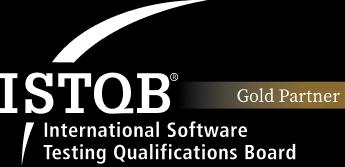
What is LCMS? Understanding the Learning Content Management System
As the demand for learning and skill development continues to grow, managing learning content has become a significant challenge for organizations, educational institutions, and businesses. LCMS (Learning Content Management System) emerged as an advanced solution to organize, distribute, and optimize learning content effectively. With flexibility, ease of use, and personalization, LCMS not only supports companies in developing training programs but also helps educational institutions improve teaching and learning quality. So, what is LCMS, and what benefits does this system bring? Let’s explore this topic in detail below.
I. What is LCMS?
LCMS or Learning Content Management System, is software that helps create, manage, store, and distribute e-learning content efficiently. Unlike Learning Management Systems (LMS), LCMS focuses on developing and organizing educational content, allowing businesses and educational institutions to optimize their learning resources. LCMS enables administrators and developers to customize and distribute learning content to various learner groups, enhancing engagement and effectiveness in the learning process.
Learn more in the article: SaaS LMS: Comprehensive Learning Management for Education & Training
II. Benefits of Using LCMS
LCMS is more than just a content management system; it is a tool that enables businesses and educational institutions to optimize training and increase knowledge for employees and students. Here are the main benefits of using LCMS:
- Optimizes Learning and Training Processes: LCMS automates tasks like content organization, course distribution, and tracking individual progress, saving time and effort.
- Personalized Learning Experience: LCMS allows for customized content to fit individual needs, skill levels, and learning styles. This enables learners to develop their skills effectively.
- Centralized Learning Content Management: Instead of storing content in various locations, LCMS helps businesses and educational institutions centralize all learning content into a single platform, making it easier to manage and maintain.
- Scalability and Integration Capabilities: LCMS can integrate with other systems like HRM (Human Resource Management) and ERP (Enterprise Resource Planning), expanding functionality and boosting efficiency for organizations.
III. Key Features of LCMS
When selecting an LCMS, organizations should consider the following key features to meet their learning and development needs:
1. Powerful Content Creation Tools
LCMS provides robust tools that allow developers to create multimedia learning content such as videos, images, documents, and interactive quizzes. This increases the engagement and interactivity of learning content.
2. Content Distribution Capabilities
With LCMS, businesses can easily and efficiently distribute learning content to different learner groups. LCMS also offers flexible distribution options, including real-time online learning or self-paced learning.
3. Progress Management and Reporting Functions
LCMS provides tracking and reporting tools that allow administrators to monitor, evaluate learning progress, and adjust content accordingly. This ensures that every learner achieves their learning goals.
4. Multi-Platform Integration Capabilities
LCMS supports integration with other systems and software such as CRM, LMS, and document management tools, creating a comprehensive solution for businesses.
IV. LCMS vs. LMS: What’s the Difference?
Both LCMS and LMS are management systems for online training, but each system has different functions and goals.
| Criteria | LCMS (Learning Content Management System) | LMS (Learning Management System) |
| Main Purpose | Focused on creating, managing, and optimizing learning content | Focused on managing the learning process and tracking learners' progress |
| Primary Function | Provides tools for content creation and multimedia resource management | Manages learners, enrollments, progress tracking, and certification |
| Customization | Personalizes learning content based on learner needs | Manages course structure and learner interaction |
| Reusability | Supports reusing materials across multiple courses | Less support for content reuse compared to LCMS |
| Application | Suitable for organizations that need diverse content management | Suitable for organizations that need learner progress management |
| Reporting Feature | Focuses on content management and development reporting | Reports learner progress, results, and effectiveness |
| System Integration | Integrates with LMS and other systems to create a learning ecosystem | Integrates with LCMS and supplementary learning tools |
V. Guide to Choosing the Right LCMS
Choosing an appropriate LCMS system requires careful consideration to ensure it meets your organization’s training and development goals. Below are essential factors to consider:
1. Determine Training Needs and Scale
Before selecting an LCMS, define your organization’s specific training needs and scale of implementation. This helps in identifying essential features and avoids resource waste.
2. Choose an LCMS with Customization Capabilities
LCMS platforms offer numerous customization features that allow personalized learning content. Organizations should select a system with flexible customization to cater to diverse training needs.
3. Integration Capability with Other Systems
To maximize effectiveness, choose an LCMS that can integrate with other software within your ecosystem, such as CRM, LMS, and other tools.
4. Cost and Technical Support
Evaluate the maintenance costs of the LCMS, including initial setup fees, annual usage fees, and any additional costs. Additionally, assess the provider’s technical support services, as a robust support system ensures stable operation and quick resolution of technical issues during use.
5. Security Features
Data security is crucial for any system managing and storing an organization’s internal information. An LCMS should offer strong security features, such as data encryption, multi-layer user authentication, and regular data backups to ensure the safety of learning data and users’ personal information.
6. Ability to Customize Learning Content
The LCMS should offer easy-to-use content customization tools to meet learners' specific needs. This capability allows organizations to tailor learning content to different audiences, enhancing personalized learning and improving training effectiveness.
7. Analytics and Reporting Features
An effective LCMS provides detailed analytics and reporting tools, enabling organizations to evaluate the effectiveness of learning content and learner performance. These reports help managers make informed decisions for improving content and enhancing training quality.
VI. Conclusion
An LCMS is an optimal solution for content development and management in businesses and educational institutions. With high customization, cross-platform integration, and powerful content management features, an LCMS not only optimizes the training process but also enhances learning quality and effectiveness. To deploy an LCMS effectively, organizations should clearly define their specific needs and select a system that aligns with their objectives and scale.
This detailed article on LCMS covers its benefits, features, and guidance on choosing the right LCMS. We hope it helps you understand the importance of LCMS and how to optimize this system to enhance online training efficiency. Follow us for more insightful knowledge!
SHARE THIS ARTICLE
Author
Huyen TrangSEO & Marketing at Tokyo Tech Lab
Hello! I'm Huyen Trang, a marketing expert in the IT field with over 5 years of experience. Through my professional knowledge and hands-on experience, I always strive to provide our readers with valuable information about the IT industry.
More Posts



About Tokyo Tech Lab
Services and Solutions
Contact us
© 2023 Tokyo Tech Lab. All Rights Reserved.







